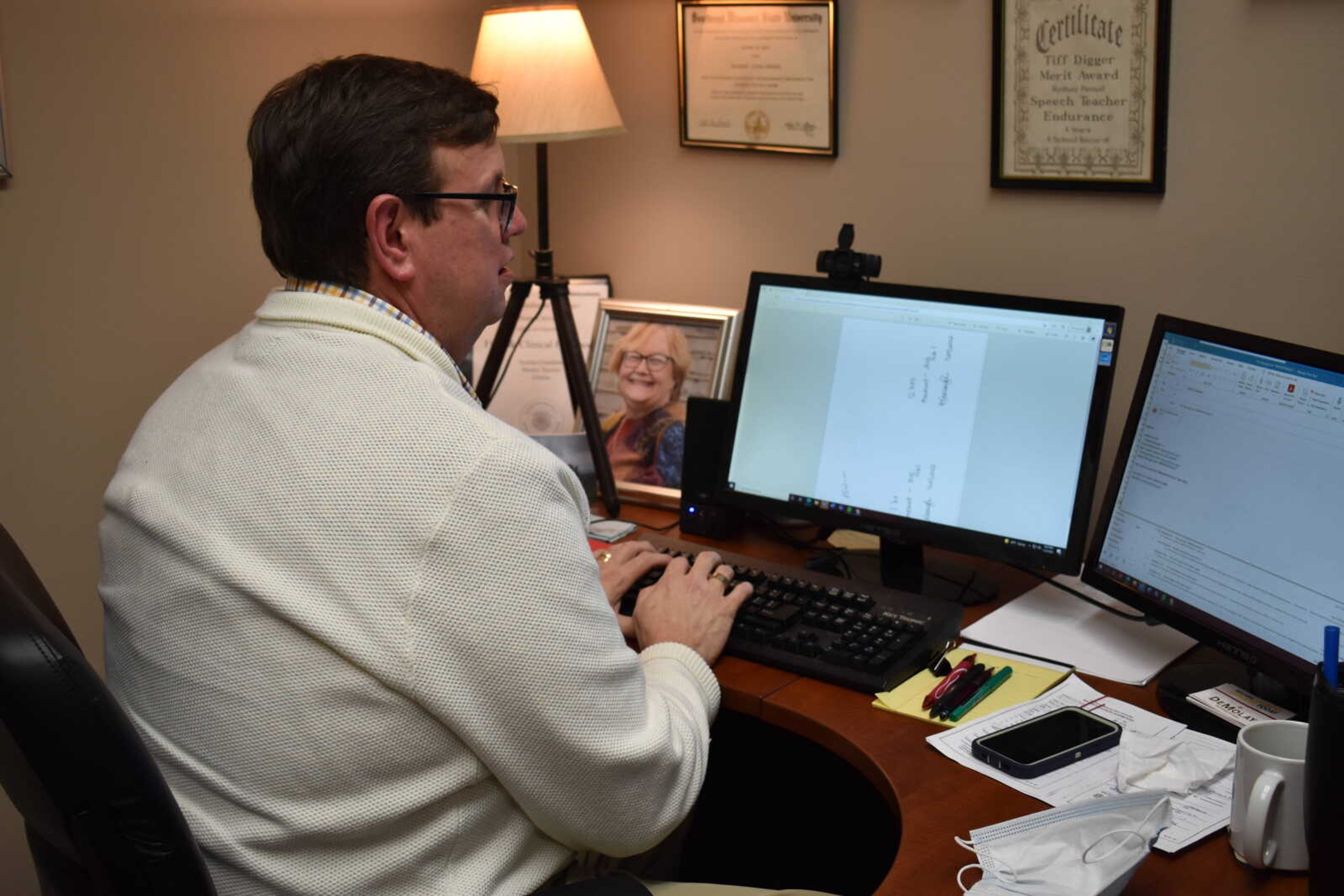Southeast student teachers adapt to the “COVID-19 normal”
A daily rise in COVID-19 cases and temporary school closings across Cape Girardeau County have impacted SEMO education majors in their student teaching assignments.
A daily rise in COVID-19 cases and temporary school closings across Cape Girardeau County have impacted SEMO education majors in their student teaching assignments.
According to The New York Times, an average of 150 cases per day were reported in Cape Girardeau County in the third week of January, a 66% increase from the average two weeks prior.
Rodney Pensel, SEMO’s director of field experiences, said the 165 student teachers placed in 65 school districts this semester are not as affected by COVID-19 as they were during the widespread shutdowns in 2020. Districts have developed alternative mode instruction (AMI) days to ensure high school students can complete coursework when classes are not in session.
“It doesn’t matter how you feel about COVID-19; if you don’t have the people, you can’t open the school,” Pensel said.
Omicron isn’t the only challenge faced by area school districts. Inclement weather and inadequate staffing of bus drivers, custodial workers and cooks have forced closures in the county throughout the past two weeks. Pensel said the closures were a good time for custodial workers to deep clean the schools.
Pensel said districts are better prepared to handle COVID-19 than when the virus first emerged two years ago. Vaccines, testing and public health guidelines are keeping students and staff members safer.
“I don’t think we will see a full school shutdown like we did in the past,” Pensel said. “Maybe a day here or two.”
Student teachers are required to follow the guidelines of the school where they are assigned to teach. For example, most high schools do not have a mask mandate, but student teachers and immunocompromised students wear masks.
Senior education major Jacob Barton is currently doing fieldwork for his emphasis in social studies. He is a student teacher in the psychology department at Jackson High School. Barton said he feels safe in the classroom because the school’s administration takes the appropriate precautions to ensure the safety of students and workers. The school was closed Jan. 6-7.
“When the school called off for those AMI days, the support by the community was amazing,” Barton said. “When you look at the comments on social media, they were overwhelmingly thrilled and thanked the administration for looking out for the best interest of our students.”
Barton said COVID-19 mildly interrupted his field experience in the spring of 2020, but learning how to teach through Zoom was a positive experience. He said he can use the skills he learned teaching remotely for the rest of his life.
Senior education major Emily Bloodworth is currently doing fieldwork for her emphasis in English writing at Cape Central High School. She said a lot has changed in the classrooms since she started her field experience. Bloodworth said school districts remain cautious, but guidelines are not as restrictive as the 2020-2021 school year.
“When I started, students were either spaced out at desks, or they had plexiglass between the desks,” Bloodworth said. “That is not the case anymore; I’m seeing less plexiglass and less of the social distancing.”
She is thankful for the skills she has learned from teaching during a pandemic.
“I think the main difference between teaching in [a] pandemic versus teaching in a non-COVID year is that you have so much more empathy and a larger ability to be flexible and to change the lesson plan quickly to meet the needs of your students, because the needs of your students are ever-changing,” Bloodworth said.
To learn more about local and state cases of COVID-19, visit the Missouri Department of Health and Senior Services.







